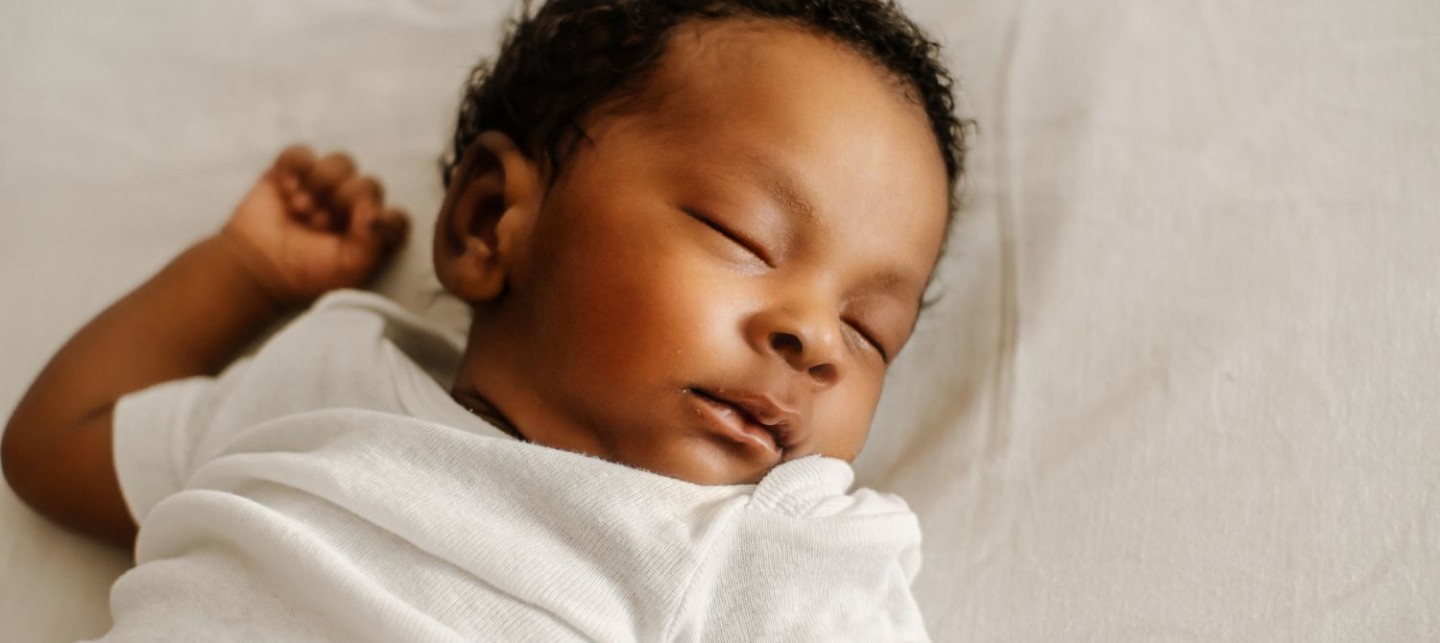Baby sleep: what you need to know
One of the most common parenting questions is how much sleep babies need, and how to get them to sleep for longer. It might not seem like it, considering the amount of times you get up during the night and tend to your little one during the day, but by the end of their first year, infants will have spent well over half their lives sleeping!
Babies spend a lot of time sleeping because they need it for their growth and development. It’s different to adult sleep in that it’s an active process, not a passive one. When your baby sleeps, their brain develops and matures, preparing them to process and explore their world. Sleep helps them to develop physically and is also critical for supporting their immunity as it helps to
produce T-cells, which fight off some viruses and bacteria. Sufficient sleep also helps babies recover from sickness as during sleep the immune system releases proteins called cytokines. If your baby has an infection and doesn’t get enough sleep, the production of cytokines decreases, which slows down their recovery.
Napping also plays a huge role in their development as they are linked to better emotional regulation and brain development, and also help to support good night-time sleeps.

How much sleep do babies need?
Age Total sleep time Night time
0-3 months
15-18 hours of sleep a day
8-9 hours of sleep broken up by night feeds
4-12 months
12-16 hours of sleep a day 9-10 hours of sleep
12-24 months
11-14 hours of sleep a day 11 hours of sleep
About sleep patterns
It’s important to note that not all babies are the same, so try not to compare your little one’s sleep times to another's. You might have a little explorer who needs less sleep than the “norm” but who is still healthy and thriving. Newborns can sleep for up to 18 hours a day , with night sleep duration increasing steadily. After a few weeks your baby will be awake for longer periods, and will have longer sleep stretches, with night waking's also reducing.
As newborns require feeding every few hours, they won’t be able to sleep through the night until they’re around eight weeks. Remember though that every baby is different – some sleep for shorter bursts, while others for longer, and some might only sleep through from the age of six months or even a year.
There are two types of baby sleep states: active (REM - rapid eye movement) and deep (NREM – non rapid eye movement). During active sleep, a baby’s eyes move around (while still closed), their breathing might speed up, their limbs might twitch or jerk, and they might move their mouths. During non-active sleep, a baby is still. When a baby is three months old, they will have the same four stages of sleep as an adult – two light, one deep and one dream stage.
As they get older, babies sleep less in the daytime, have longer night-time sleeps, wake less at night, are awake for longer between naps, and need less sleep generally.

Establishing healthy sleep habits
A regular routine and bedtime rituals are important for establishing good sleep habits. They help your child fall asleep, sleep better and ensure they get enough rest. A child will also learn bedtime cues such as a cuddle and story, and putting your child to sleep before they are overtired also saves you stress and time. A bedtime routine can also become a special bonding time between you and your baby and there’s a lot of joy to be had from nighttime cuddles, story time and lullabies.
Learn the signs of fatigue
Overtiredness can make it difficult for your baby to fall asleep, so it's important to know when they're ready for a nap. Eventually you'll know instinctively when they're tired, but until then, signs to look for include crying, rubbing their eyes, pulling on their ears, and faint dark circles under their eyes.

Encourage self-soothing
The ability to self-soothe when falling asleep (settling to sleep at the beginning of the night and getting back to sleep if they wake during the night) is key for the development of healthy sleep- wake patterns. Babies who self-soothe are generally considered to be better sleepers than those who consistently need assistance to make the wake-sleep transition.
While it’s tempting to tend to every cry or whimper your baby makes, sometimes it’s better to leave them for a few minutes to see if they settle themselves. A pacifier might help your baby with the self-soothing process.
Swaddle them
Research has found that swaddling (wrapping your baby in a light blanket can calm and soothe babies and prevent them from waking themselves up from all the newborn reflex actions in the early days. If your baby doesn’t like being swaddled, a specially made “sleep sack” can provide comfort, too.


Leave a comment